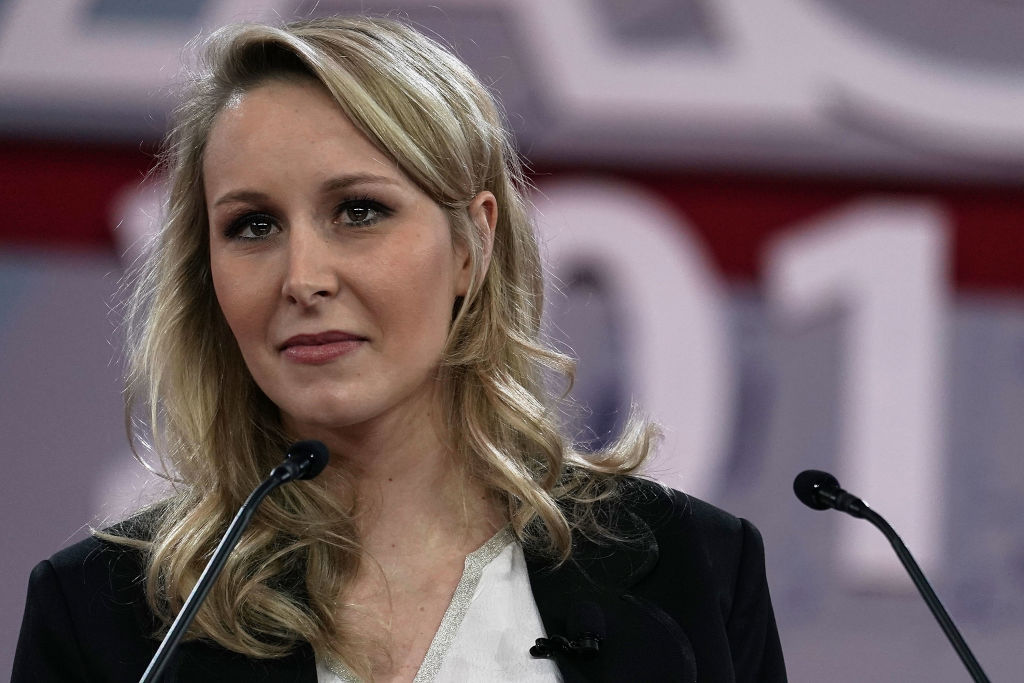Last summer, a French magazine warned on its front cover that 250,000 migrants were headed their way in 2018. ‘Alarmist’, cried the magazine’s opponents but events in Italy may make it a prescient forecast. The declaration from the incoming Italian coalition government that they intend to deport half a million illegal immigrants from their shores will send a shiver through the Élysée Palace. How many will wait to be rounded up and repatriated? And how many will flee towards France, adding to the already desperate situation in Paris and Calais?
As I wrote last July in the Spectator, Emmanuel Macron can grandstand on the global stage as much as he likes. He can also push through his economic reforms. But it’s how he handles the migrant crisis that will determine if he is re-elected in 2022. Immigration almost certainly equals more Islamic terrorism in the eyes of millions of French, who point to the last seven months and the deadly attacks perpetrated by men of Moroccan, Tunisian and Chechen origin. On Friday, the government announced that an Egyptian had been arrested in Paris on suspicion of plotting a chemical gas attack.
Macron beat Marine Le Pen in last year’s election, not because France believed in him but because they couldn’t bring themselves to vote for the National Front. They gave the young upstart five years to show what he could do, but if he fails to make them feel safe then they will turn to someone more forceful in 2022.
Step forward Marion Maréchal Le Pen, the 28-year-old granddaughter of Jean-Marie, the founder of the National Front. Since resigning as an MP last year she’s kept a low profile but she may have made the first step on the political comeback trail. She has just rebranded herself by dropping the ‘Le Pen’ from her name, so from now on it’s Marion Maréchal, as she was known until 2010. That year she entered politics and decided it would be a good career move if she appended her mother’s (Marine Le Pen’s sister) surname to her own. “Le Pen is a brand that speaks to people,” she said by way of explanation. “It’s not solely a toxic name because thanks to this name I’ve gone from being an unknown to someone with a certain credibility.”
Her adoptive father is Samuel Maréchal and her biological one is Roger Auque, a former diplomat and spy. Now dead, he played little part in her upbringing but it’s from him she inherited the charm and guile that isn’t found in the Le Pen genes. Now that the ‘Le Pen’ name has served its purpose, Maréchal wants to move on, restyling herself as a businesswoman and, in time, a candidate for the 2022 election, probably as head of a new party that cuts across class and age to bring together conservatives, Catholics and nationalists, united by a fear of Islam, immigration and inner-city violence.
Her immediate focus, however, is the private right-wing academy she launched yesterday in Lyon. Describing the Institute of Social Science, Economics and Politics on Twitter as “a new adventure”, Maréchal said she was “proud to participate and contribute to the emergence of a generation ready to meet the challenges of tomorrow”. An hour after the launch the institute’s website crashed under the strain of visitor numbers, an indication perhaps that there will be no shortage of students when classes begin in September.
It’s not the first academy of its kind in France. Paris has the Institute of Political Formation, a right-leaning establishment in Paris, and there is also the Catholic Institute of Higher Studies on the west coast of France, a small private university created in 1990 by Philippe de Villiers. During her spell in parliament, Maréchal was a confidant of de Villiers, a successful businessman who used his money to form, in 1994, a conservative and Eurosceptic party called Movement for France. More recently, he authored the best-selling ‘Will the Church Bells Ring Tomorrow?’, a book that describes a France being insidiously Islamified. This is a theme close to Maréchal’s heart. As she told the Conservative Political Action Conference in Washington earlier in the year:
“France is in the process of passing from the eldest daughter of the Catholic Church to the little niece of Islam, and the terrorism is only the tip of the iceberg.”
De Villiers was recently on television, boasting of the deep friendship he has formed with the presidential couple since bumping into them in a Parisian restaurant in 2016. It was Brigitte Macron who broke the ice, apparently, telling de Villiers she had appreciated his book. A newspaper claimed on Sunday that Madame Macron “has a cultural weakness for this vision of the right, which represents the soil, the church bells and the harvest.” As for her husband, he was quoted by the newspaper as admitting he has “an ethos of the right”.
Is it a genuine friendship on the president’s part or one born of political expediency? (Something that could be asked of Maréchal’s new boyfriend, a prominent figure in Italy’s ruling far-right). Macron is an astute politician – friends and foes talk of his “sixth sense” – and he knows his strongest challenge in 2022 is likely to come from Maréchal. An alliance between her and de Villiers would be a powerful one, so it makes sense for Macron to bring him into his camp.
The friendship has further infuriated the left, who feel utterly betrayed by the former Socialist minister; Macron won’t care. Fifty years after the 1968 social revolution, it’s clear the left are ideologically exhausted, leaving only pockets of fanatics to fight and strike to the bitter end. The future of France belongs to the right, and the 2022 election will be a battle to determine just how far right.







Comments